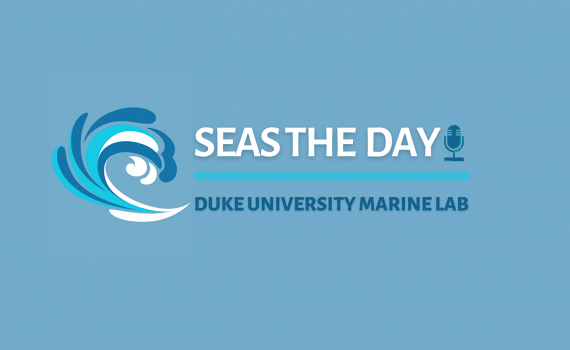The Convention of Biological Diversity is set to meet in October 2021 and will discuss adopting a new target of protecting 30% of the ocean by 2030. Over the last two decades, there has been a drastic increase in the number of large-scale marine protected areas (MPAs) driven mainly by international MPA targets and a “bigger is better” approach to conservation. In this episode, Megan Swanson and Sage Riddick explore how these often remote ocean spaces can still have important social impacts by looking at two cases: the Chagos Marine Protected Area and the Papahānaumokuākea Marine National Monument.
marine science
In this episode, Rafaella Lobo and Jessica Zhao explore the role of non-government organizations (NGOs) in promoting conservation in developing countries. They focus in particular on the role of and relations among Big International NGOs (BINGOs) and small, local NGOs, the strengths and weaknesses of each.
With a focus on "Memorializing the Middle Passage on the Atlantic seabed in Areas Beyond National Jurisdiction” (published in the journal of Marine Policy in October 2020), episode host, Stephanie Hillsgrove interviews two of the authors from the paper - Dr. Phillip Turner, Duke University Alumni and Dr. Cindy Van Dover, Professor of Biological Oceanography at Duke University.
On this episode, Masha Edmondson and Brandon Gertz explore the risks, rewards, and resistance deep-sea mining has sparked in three pacific island nations: Papua New Guinea, the Cook Islands, and Fiji.
In this episode, Maggie, Lily, and Savannah explore the intersections between ecotourism and Indigenous tourism. Using the lens of agency, they use specific cases to highlight how the agency of Indigenous peoples within tourism ventures varies, and with what consequences.
In this episode, Rafaella Lobo and Jessica Zhao explore the role of non-government organizations (NGOs) in promoting conservation in developing countries. They focus in particular on the role of and relations among Big International NGOs (BINGOs) and small, local NGOs, the strengths and weaknesses of each.
On this episode Lillian Dukes, Haoyang Tang, and Franny Oppenheimer address the current status of the North Atlantic right whale and the threats they face like entanglements, ship strikes, and climate change. The episode also explores management measures that have been taken to protect them and considers the future of this critically endangered whale.
On this episode Bree Collins and Erin Sullivan speak with Dr. Andy Read and Dr. Randy Wells about their past, present, and future efforts to save the critically endangered vaquita.
Host Rafaella Lobo talks to five current and former students, as well as a faculty member, about their experiences leaving their home countries to pursue higher education in the US.
In this episode, Maggie, Lily, and Savannah explore the intersections between ecotourism and Indigenous tourism. Using the lens of agency, they use specific cases to highlight how the agency of Indigenous peoples within tourism ventures varies, and with what consequences.

